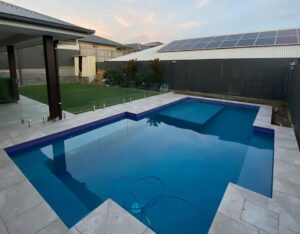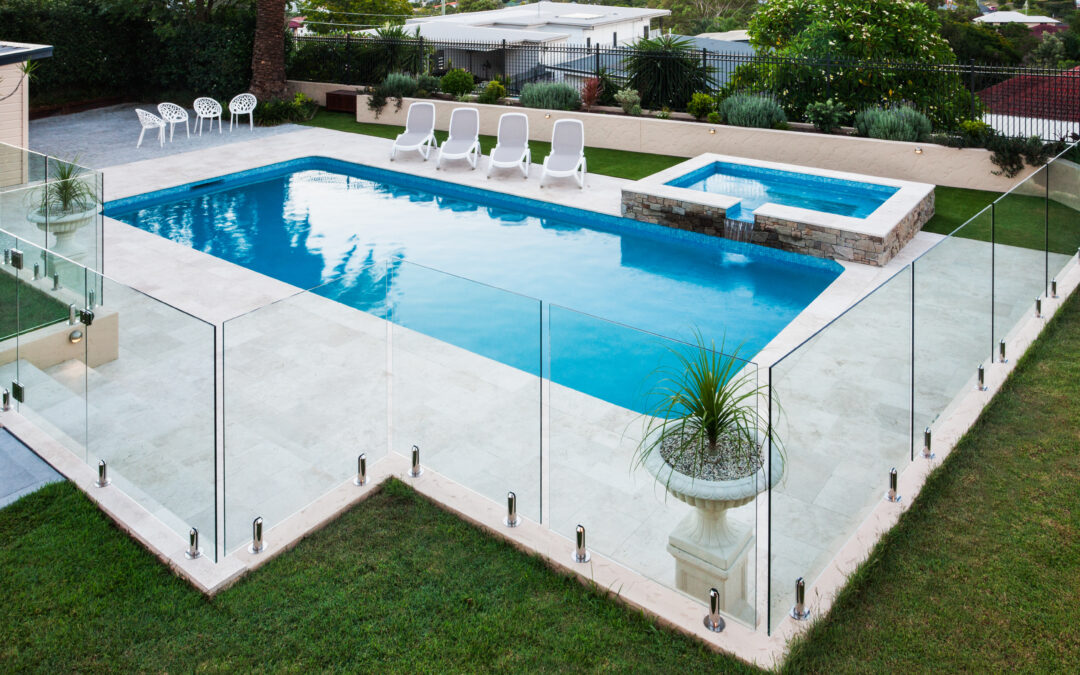Home owners have been debating for years over one simple question: which is better, Concrete or Fiberglass pools? As there are with everything in life, there are many factors you have to consider when attempting to answer that question. Because, put simply, not everyone’s needs and wants are identical, so different people will require different kinds of pools. In this article, we will detail 4 of the factors to consider when comparing the two. These are:
- Pricing
- Design
- Construction and Durability
- Cleaning

Firstly, we will discuss pricing:
Cost
The upfront cost of both Fiberglass and Concrete Pools are about the same, averaging $50,000 and up for a concrete pool build, and $45,000 for Fiberglass.
But that’s about where the similarities end. One of the main appeals of Fiberglass Pools is that they are very easy and cheap to maintain, whereas a Concrete Pool (if you don’t choose to DIY) can be more expensive to maintain.
The main extra costs of a Concrete Pool is retiling or re-plastering every 20 or so years and cleaning services.
Design
Due to the way Fiberglass Pools are made, you are not able to custom design your own pool. All Fiberglass pools are created with pre-set moulds so if you’re looking for originality, Fiberglass is not the way to go.
Concrete Pools do not suffer from this problem and this is why concrete pools are favoured for people who want a specific pool type (plunge pools, lap pools etc.). Concrete Pools really have an almost unlimited amount of shape and size options, the only limit is your imagination!
Of course, with both types of pools you can add as many water features, lights etc. as you want!
Construction and Durability
Pool Builders Brisbane take an average of 3-6 months to complete a Concrete Pool build, but only take 5-10 weeks to finish a Fiberglass Pool build. This is due to the fact that Fiberglass Pools are just installed on the site, but Concrete Pools have to be constructed from scratch. And although you might be thinking that 5-10 weeks is much better than a few months, keep in mind you are compromising on the size, shape, and design of your pool (after all, the Fiberglass pool has to travel by truck to your house!).
While both are incredibly strong, they are considerable drawbacks to each. For example, Fiberglass pools are susceptible to cracking and general wear and tear. Soil movements from underneath the Fiberglass Pool also can cause some serious damage.
Concrete Pools on the other hand are far more durable and strong than Fiberglass and are a lot less susceptible to damage, though if damages do occur, it can be more expensive to fix.
Cleaning
Both kinds of pools need regular cleaning, but just different kinds. Because of the smooth nature of fiberglass, algae will find it harder to grow compared to the bumpy nature of Concrete Pools. Although, if you have a Fiberglass Pool and don’t keep your water’s PH and Alkalinity level in check it will begin to break down the protective coating that is applied over the Fiberglass. This can lead to a multitude of issues, including sun exposure and warping.
If you’re interested in upgrading your lifestyle with a Pool, Please contact us here .


Recent Comments